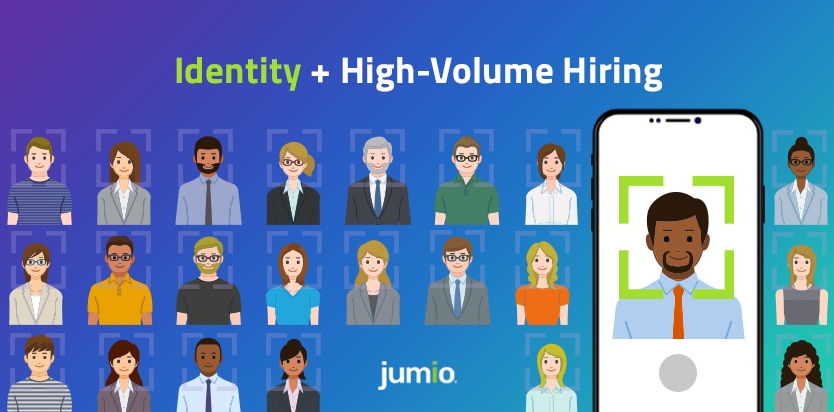
As the economy slowly starts to recover, there are still pockets of the market that still need to hire lots of folks en masse. This is known as high-volume recruitment and generally refers to filling a larger-than-average number of positions in a relatively short time frame. And much like everything else in the COVID era, much of the screening and recruitment process is now happening online.
Given unemployment levels, it’s not surprising to see companies in this space completely inundated with applicants, which has become overwhelming to process and quickly and efficiently separate the wheat from the chaff. This isn’t just an Amazon problem (who hired 100,000 people in April alone) — it impacts grocery, retail, transportation and the gig economy.
An increasingly important part of the screening process is the identity verification step. Pre-COVID, many of the Fortune 100 companies had physical hiring centers where applicants would go to apply and provide the necessary documentation and tax forms. In the U.S., employers must document the eligibility of new employees to work in the U.S. All new hires must complete a Form I-9 (Employment Eligibility Verification) and provide proof of identity. In the UK, employees are required to provide a biometric residence permit number, a biometric residence card number or a passport or national identity card to prove their right to work. Background checks are often part of the screening process too.
The Case of Uber
Back in 2017, Uber lost public trust in London over licensing concerns when Transportation for London (TfL) revoked (and later overturned) Uber’s license to operate in the city.
The issue? Uber does not have a tested method for background checks, but it actually went well beyond that. A number of drivers would share one account, and whenever one of them went out to drive, they’d upload their own photo to fool passengers. The unauthorized drivers were able to pose as vetted, licensed and insured, when often they weren’t. Instances of unauthorized drivers, including convicted felons, being on the Uber app have surfaced in other cities, including San Francisco, Houston and Boston.
Sometimes drivers reportedly used another person’s license and Social Security number to sign up for the ride-hailing service. Other times they used fake names. And on some occasions they bought bogus identities on the dark web. For bad actors, it’s not hard to circumvent Uber’s sign-up process since it’s designed to get drivers onboarded as quickly as possible and with as little hassle as possible.
But, this is not just an Uber problem. There are plenty of other examples of food delivery drivers who commit crimes or sexual misconduct against the people who order their food online.
Most organizations involved in high-volume hiring face the same challenge: how to source, vet and onboard quality employees as fast as possible, with the least amount of friction, while simultaneously ensuring you’re not hiring bad actors, criminals, or people who are not authorized to work in the country.
The Answer: Online Identity Verification
With online identity verification, the online applicant is asked to capture a picture of a government-issued ID (e.g., a driver’s license or passport) and take a corroborating selfie. During the selfie-taking process, the applicant is asked to perform some type of liveness check to ensure that they are physically present. This method of identity proofing offers a number of advantages to high-volume recruiters, including:
- Higher levels of identity assurance: With a valid ID and selfie, employers can have higher levels of trust that the applicant is who they claim to be. This process helps high-volume recruiters quickly disqualify candidates, weed out bad actors and lower the cost per hire.
- Trust and safety: Because a valid ID is required (and checked to ensure its authenticity), it’s significantly more difficult to circumvent than traditional forms of identity verification that simply involve pinging a credit bureau based on self-reported data. Given the volume of data breaches and the amount of PII data on the dark web, you can have no assurance that the person providing that information is, in fact, the person claiming that digital identity.
- Reduced cost for background checks: There are a number of different types of background checks from simple identity checks to criminal background checks to credit checks, which can vary from $2 to $25 depending on the number and types of check performed. By verifying the identities of online applicants first, high-volume recruiters can save significant money by only paying for the background checks of applicants who have been successfully verified online.
This is why we’re excited to partner with Fountain, a high-volume hiring platform empowering the world’s leading brands to streamline and scale their recruiting function. We’ve embedded our identity verification workflow directly within Fountain’s job application process. This intuitive integration empowers companies with an hourly workforce to streamline and scale their recruiting programs with confidence.
See how the Jumio-Fountain integration works here:

Check out our on-demand webinar with Fountain to learn more.
